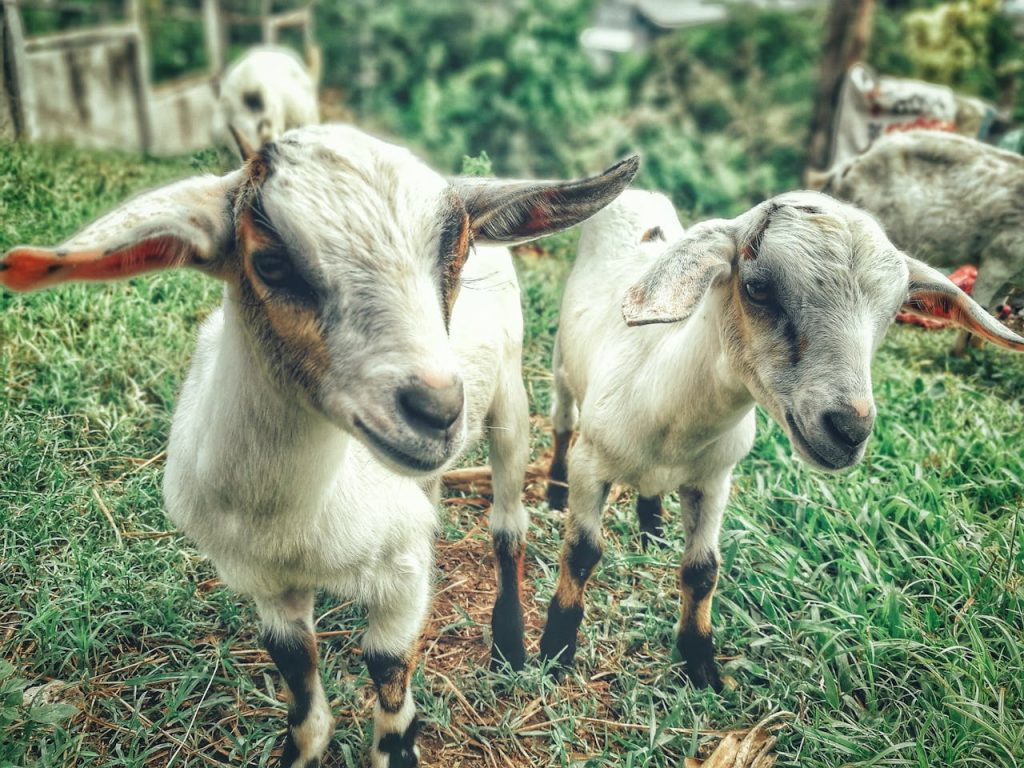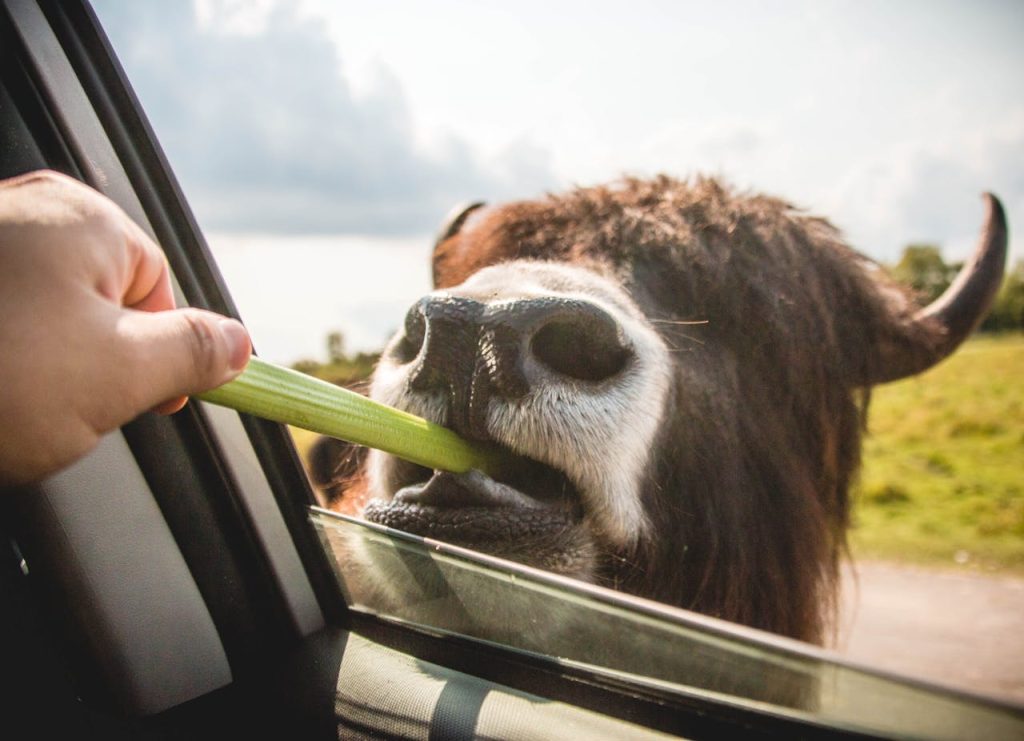When it comes to goats, there are a lot of things that people don’t know. For example, can goats eat celery? This is a question that a lot of people have asked, and the answer is yes – goats can eat celery.
In this blog post, we will cover everything you need to know about goats and celery. We will discuss the nutritional value of celery for goats, as well as how much celery your goat can safely eat. So if you’re interested in learning more about this topic, keep reading!
Contents
Why Celery Is Important To Your Goats
Celery is a great source of nutrition for goats. It is high in fiber and low in sugar, which makes it a perfect food for goats. Celery is also a good source of vitamins and minerals, including vitamin C, potassium, and magnesium.
Goats need all of these nutrients to stay healthy, so feeding them celery is a great way to make sure they are getting everything they need.

How Much Celery Can Goats Eat?
When it comes to how much celery your goat can eat, it is important to consider the size of your goat. A full-grown adult goat should be able to eat about two pounds of celery per day.
If you have a smaller goat, you will want to give them less celery. It is also important to note that goats should not eat celery all at once. They should have access to fresh celery throughout the day, so they can graze on it as they please.
How Often You Should Feed Your Goats With Celery
Celery is a great source of nutrition for goats, and feeding them celery regularly can help keep them healthy and happy. But how often should you feed your goats celery?
Ideally, you should aim to feed your goats celery at least once a day. This will ensure that they are getting the nutrients they need and that their digestive system is functioning properly.
There are also several other benefits to feeding your goats celery regularly. Here are just seven of them:
Pros Of Feeding Your Goats With Celery
- Packed with vitamins: Celery is packed with vitamins and minerals, including vitamin C, potassium, and folate.
- Helps with digestion: Celery is a good source of fiber, which can help keep your goats’ digestive system healthy.
- Aids in weight loss: Celery is low in calories and fat, making it a great food for goats who are trying to lose weight.
- Reduces stress: Celery contains a compound called luteolin, which has been shown to reduce stress and anxiety in goats.
- Boosts energy levels: Celery is a good source of natural sugars, which can give your goats a much-needed energy boost.
- Fights inflammation: The antioxidants in celery can help reduce inflammation throughout the body.
- Promotes healthy skin and coat: The vitamins and minerals in celery can help promote healthy skin and coat.
Cons of Feeding Your Goats With Celery
While there are several benefits to feeding your goats celery, there are also some potential drawbacks.
- Gastrointestinal problems: Some goats may experience gastrointestinal problems, such as diarrhea when they eat celery. If this occurs, it is best to stop feeding them celery and consult with a veterinarian.
- Allergic reactions: Some goats may be allergic to celery. If you notice your goat is having trouble breathing, swelling of the face or neck, or hives, stop feeding them celery and call a vet immediately.
Do Goats Like Celery?

It’s a question that has been asked time and time again: do goats like celery? The answer, unfortunately, is not as straightforward as we would like it to be. While there are certainly some goats out there who enjoy munching on celery, there are just as many (if not more) who couldn’t care less for the stuff.
So why is it so hard to say for certain whether or not goats like celery? Well, for one thing, goats are individuals with their own unique preferences and personalities.
Just like humans, some goats will love celery while others would rather not touch the stuff. Additionally, a goat’s opinion on celery can change over time. They may love it as a kid but grow out of it as they get older (or vice versa).
Ultimately, the only way to know for sure if a particular goat likes celery is to offer them some and see what happens. If they eat it eagerly, then you’ve got yourself a celery-loving goat on your hands. If they turn their nose up at it, however, then you’ll know that celery isn’t their cup of tea.
Can Baby Goats Eat Celery?
It’s a common question that many people ask, and for good reason. Celery is a healthy vegetable packed full of nutrients, so it’s understandable that you would want to give some to your baby goat. However, there are a few things to keep in mind before giving celery to your little one.
For starters, baby goats are very curious and will put anything and everything into their mouths. This means that they could choke on the celery if it’s not cut up into small pieces.
Question”
Possible to give baby goats celery?
yes, it is but you should know that Celery is also a relatively hard vegetable, so it’s important to make sure that it’s cooked or softened before giving it to your baby goat.
Baby goats have delicate stomachs and can easily get diarrhea if they eat something that doesn’t agree with them. Celery is a high-fiber vegetable, so it’s possible that it could cause digestive issues for your baby goat.
Related articles
- Do chickens pee?
- Do Rabbits Lay Eggs- See If Bunnies Lay Eggs and Other Facts
- Can hamsters eat strawberries?
If you do decide to give celery to your baby goat, make sure to do so in moderation and watch for any signs of digestive distress.
Celery is generally safe for baby goats to eat in moderation. Just make sure to cut it up into small pieces and watch for any signs of digestive issues. If you have any concerns, always consult with your veterinarian before giving anything new to your baby goat.
Conclusion
Goats are able to eat celery and it is a good source of fiber for them. Celery also has other health benefits for goats such as helping with weight loss, improving digestion, and reducing inflammation.
Similar article; Can Cows Swim? Do Cows even Like Water And Enjoy Floating?
If you are considering adding celery to your goat’s diet, make sure to introduce it slowly and in small amounts to avoid digestive problems.

